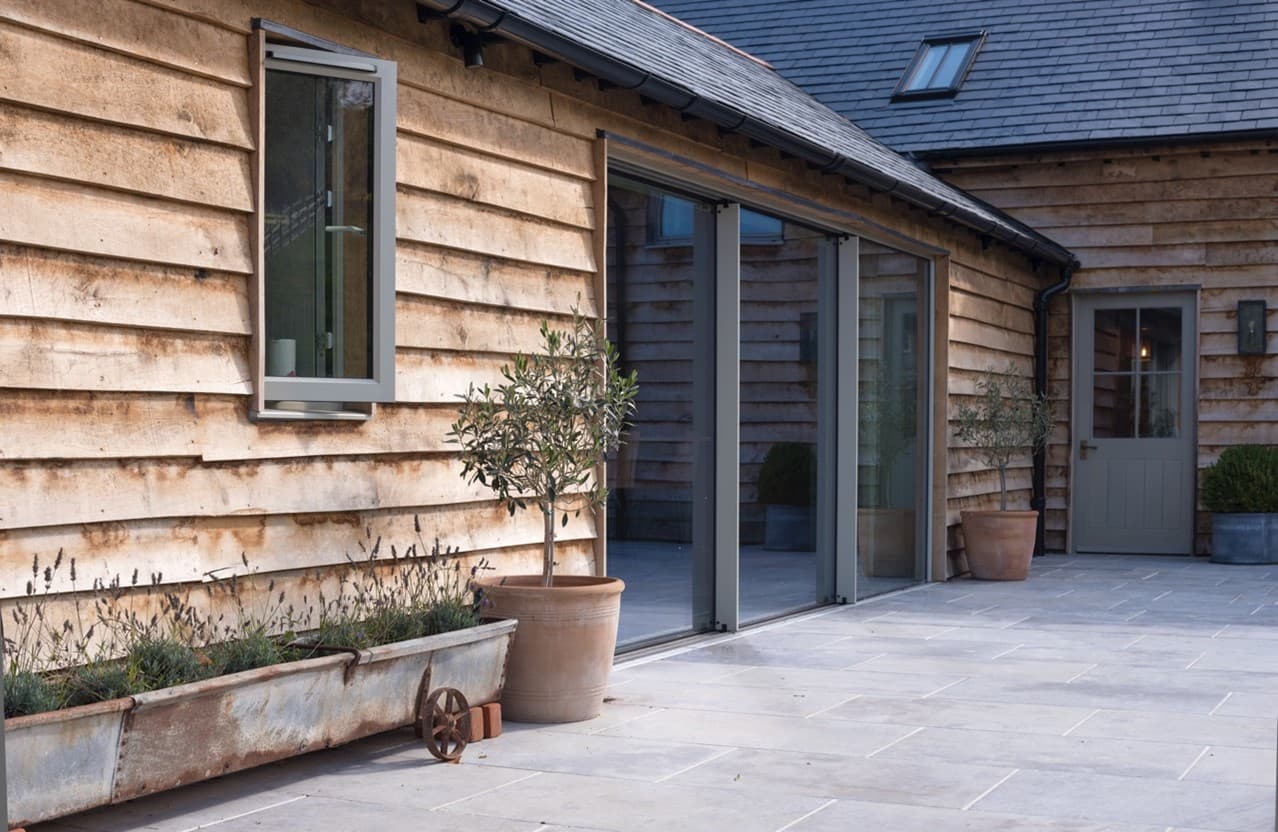Renovating a House in London: A Comprehensive Checklist and Cost Guide

Table of Contents
Renovating a house is not just about giving it a fresh look; it’s about enhancing its value, functionality, and overall appeal. In a city like London, where property values are always on the rise, a well-executed renovation can significantly boost the worth of your home. This guide will walk you through the essentials of house renovation, from understanding the process to estimating costs.
Understanding the Renovation Process
So what exactly is the meaning of the renovation process? Let’s take a closer look.
Home Renovation vs. Home Remodel
While often used interchangeably, these terms have distinct meanings. A home renovation typically involves restoring existing structures, while a remodel might change the structure. For instance, updating your bathroom fixtures would be a renovation, but changing its layout would be a remodel.
Key Steps in Renovation
The process starts with planning, budgeting, demolition, structural repairs, rebuilding, and decoration.
The Ideal Order of Renovation
When embarking on a renovation journey, having a structured sequence is paramount. Here’s a recommended order to ensure a smooth process:
Structural Repairs: Always begin with foundational elements like the roof, foundation, and chimneys. These are the backbone of your home and need to be in top shape before other renovations commence.
- Demolition: Once structural integrity is ensured, move on to removing any unwanted walls, outdated fixtures, or other elements that don’t fit into the new design.
- Structural Builds: This phase involves adding new components, be it walls, windows, or doors. It’s about shaping the space according to your vision.
- Systems Implementation: With the structure in place, it’s time to work on the house’s systems. This includes heating, plumbing, and electrical installations.
- Wall Work: Whether it’s plastering or replacing entire sections, this step ensures your walls are pristine and ready for decoration.
- Final Touches: This is where your space starts to look like a home. Painting, tiling, and installing fixtures bring life to your renovated space.
- Flooring: Always leave this for the end. With all the heavy work done, you can now lay down your chosen flooring without the risk of damage.
Having a clear “renovating a house checklist” is invaluable. It ensures no step is overlooked and aids in efficient project management.
Moreover, when considering a renovation, partnering with a trusted company can make all the difference. Fittra stands out in this regard. With their transparent processes, clients are always in the loop, ensuring there are no surprises. Their commitment to quality and timely delivery has made them a preferred choice for many. By choosing Fittra, you’re not just opting for a renovation; you’re investing in peace of mind, knowing that your home is in expert hands.
Duration of a House Renovation
The time it takes to renovate a house varies based on the project’s scope. However, most large renovations take between 1-3 years. The duration of a house renovation can be influenced by various factors, from the project’s scope to external elements like the season or location. Understanding these factors can help homeowners set realistic expectations and plan more effectively.
1. Project Scope and Complexity
The more extensive and intricate the renovation, the longer it will take. For instance, a simple kitchen update might take a few weeks, while a full house renovation with structural changes could span several months or even years.
2. Seasonal Considerations
These are popular times for renovations due to favourable weather conditions. However, this high demand can lead to contractor availability issues, potentially extending the project’s duration. However, specific tasks, like exterior painting or roofing, might be challenging in colder months.
3. Location and Regional Factors
The area where your property is located can influence both the duration and cost of the renovation:
- High-demand Areas: In sought-after neighbourhoods or city centres, contractor demand might be higher, leading to potential scheduling delays.
- Accessibility: Properties in remote areas might face challenges in material deliveries or contractor commute times, extending the renovation timeline.
4. Choosing a Contractor vs. Freelancer
- Contractor: Established renovation companies often have a team of professionals, ensuring that multiple tasks can be handled simultaneously. They might also have more experience in managing large-scale projects. However, their services might come at a premium.
- Freelancer: Hiring a freelance foreman might be more budget-friendly, but they might not have the same resources as a larger company. This choice could mean a longer renovation duration, mainly if they handle multiple roles.
5. Legal Considerations and Contracts
To ensure that your renovation stays on track, it’s wise to have a legally binding contract with your chosen contractor or freelancer. This contract should detail:
- Project Scope: A clear list of tasks and deliverables.
- Timeline: Start and end dates, with potential penalties for delays.
- Payment Terms: When and how payments will be made, including any upfront deposits.
While drafting a contract might seem daunting, it protects both parties. If you’re unsure about the legalities, consider consulting with a solicitor or legal advisor to guide you.
Costs Associated with House Renovation
The cost is influenced by many factors, with the project’s complexity paramount. For instance, the size of the property can dictate the number of materials needed and the duration of labour, both of which significantly impact the overall cost. Moreover, the materials’ quality can either elevate or reduce the budget. Labour costs, too, play a pivotal role, as specialized skills or expertise might come at a premium.
When we narrow our focus to London, the dynamics change slightly. With its prestigious status and prime real estate, London often sees higher renovation costs than other regions in the UK. On a broader scale, house renovations in the UK might cost anywhere from £20,000 to well over £100,000. However, in London’s prime areas, even a budget of £40,000 might only cover basic renovations. More extensive luxury projects in the city’s heart would naturally demand a heftier budget.
Insurance Considerations During Renovation
When renovating, ensuring you have the right insurance coverage is crucial. Standard home insurance might not cover damages during renovations. It’s wise to inform your insurance provider about the renovation and check if additional coverage is needed. This step protects you from potential risks and unforeseen expenses.
Special Considerations for Old House Renovation
Renovating an old house in London can be both rewarding and challenging. While you get the charm and character of a vintage property, there are unique challenges:
- Preservation: Older homes might have historical features that need preservation.
- Structural Issues: Older properties might have more structural issues, like foundation problems or outdated electrical systems.
- Regulations: There might be stricter regulations when renovating listed or historic properties.
Creating a Comprehensive Renovation Estimate
Crafting a precise renovation estimate is a meticulous process that requires thorough research and foresight. Here’s a detailed guide to help you navigate this task:
Itemized Task List: Begin by detailing every task involved in the renovation. From structural changes to aesthetic upgrades, list them all. This approach ensures no aspect of the project is overlooked when budgeting.
- Research and Price Comparison: Dive into various UK renovation websites to gather a range of prices for each task. Websites often provide average costs, but it’s essential to remember that these can vary based on location, complexity, and quality. You can gauge a more accurate average cost for each task by comparing multiple sources.
- Assessing Price Adequacy: To ensure a fair deal, consider consulting with multiple contractors or freelancers. You can determine a reasonable price range for your project by obtaining multiple quotes. Additionally, online forums or local community groups can offer insights from others who’ve undertaken similar projects.
- Materials Procurement: While some homeowners prefer to purchase materials themselves to maintain control over quality and cost, others entrust this task to their contractors. If you choose the latter, ensure an explicit agreement about the quality and materials brands. Contractors might have established supplier relationships, potentially leading to discounts or bulk deals.
- Keep Track of All Expenditures: Document every expense, whether it’s a significant structural change or a minor decor purchase. Retaining all receipts and invoices is crucial. Not only does this help in tracking the budget, but it also provides a clear record for future reference or in case of disputes.
- Contingency Budget: No matter how well you plan, unforeseen expenses are almost inevitable in renovation projects. It could be an unexpected structural issue or a last-minute design change. To safeguard against such surprises, always set aside a contingency budget, typically around 10-20% of the total estimated cost.
Conclusion
Renovating a house in London is a significant undertaking, but with proper planning and understanding, it can be a rewarding experience. Whether you’re updating an old house or adding new features to a modern property, the key is to be informed and prepared. And for those looking for professional assistance, especially in London, consulting with experienced professionals like the team at Fittra can ensure a successful renovation project.






